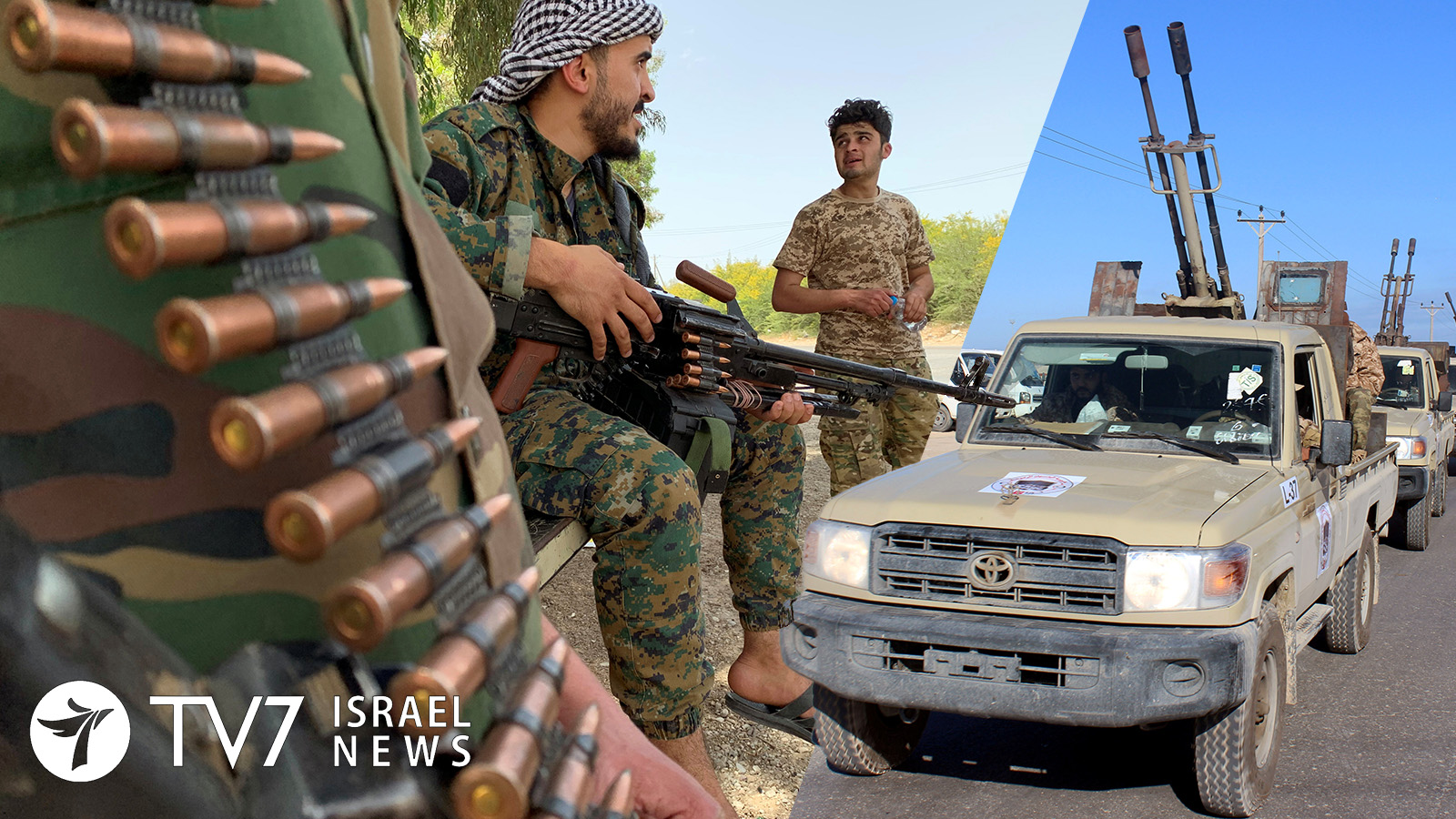Egyptian President Abdel Fattah al-Sisi has instructed his armed forces “to be prepared to carry out any mission” amid rapidly mounting tensions with neighboring Libya over Turkey’s growing military involvement.
The Egyptian leader issued the orders in an address to troops at a western military base on the Arab Republic’s border with Libya, in which he also said the deployment would be “inside our borders – or if necessary, outside our borders.”
The developments follow a swift shift in the balance of power to the benefit of the Tripoli-based Government of National Accord (GNA) led by Libyan Prime Minister Fayez al-Sarraj with the deployment of numerous advanced drones and mercenaries from his ally Turkey, forcing the retreat of the rival Eastern-based Libyan National Army (LNA) commanded by Khalifa Haftar.
Infuriated by the abrupt loss of gains during the LNA’s 14-month offensive, its patron Sisi went on to threaten that any crossing of the current fronts between the warring parties near Sirte or Jufra by the GNA would serve as “a red line” for Cairo.
Earlier this month Sisi called for a ceasefire between the factions, as part of an initiative for the election of a leadership council under international supervision. The proposal was welcomed by the United States, Russia and the United Arab Emirates; although it was quickly dismissed by Turkey as an attempt to save Haftar following his battlefield losses.
Egypt then responded to Ankara’s bolstered intervention by openly offering weapons and training to Libyan tribes in the fight against the GNA and its Turkish allies.
“Only the Libyan people can defend Libya, and we are prepared to help and support this,” proclaimed Sisi in his appeal to “Bring us your youth from your tribes for us to train and prepare and arm them, under your supervision.”
Ankara has found no lack of quarrels over its involvement in the Libya conflict. Despite openly boasting over its proactive success vis-à-vis support for the GNA, Turkey has simultaneously denied French accusations that it has violated a United Nations arms embargo on Libya.
The allegations stem from a 10 June incident when Turkish warships flashed their radar lights three times at the French warship Courbet in the eastern Mediterranean. The Courbet was on a NATO mission to check whether a Turkish vessel, the Cirkin, was smuggling weapons to Libya after it turned off its transponder, failed to identify itself or provide its final destination.
Ankara rejected Paris’ charges by arguing inspection of Turkish vessels in international waters “is not permitted.” NATO Secretary General Jens Stoltenberg nevertheless announced that the incident has been “addressed in the meeting by several allies,” and that NATO military authorities are investigating the incident “to bring full clarity into what happened.”
French President Emmanuel Macron warned his Turkish counterpart Recep Tayyip Erdogan that his country is “praying a dangerous game in Libya today and going against all of its commitments made at the Berlin conference,” in reference to a peace forum earlier this year.
The French leader further condemned NATO command for failure to denounce Turkey’s actions off the coast of Libya as “unacceptable” and “intolerable,” adding that “this is one of the best examples” of his reference last year to NATO as ‘brain dead.’ “As long as we NATO members, Europeans, concerned by this subject, continue to be weak in our spoken words, not clear, we will allow the games of those (members such as Turkey) who aren’t cooperating to play themselves out.”
Following talks at Elysee Palace with his French counterpart, Tunisian President Kais Saied described the GNA’s “international legitimacy” as “temporary” and said it “cannot continue.” Instead, Saied called for the creation of “a new legitimate government” that is “born of the will of the Libyan people.” He also declared that “Tunis will not accept the division of Libya.”
German Foreign Minister Heiko Maas has also stressed the importance of reaching a comprehensive agreement for a ceasefire in Libya. “There is the threat that this conflict will escalate further, at the latest since the Egyptian president announced that a military reaction from Egypt was no longer to be ruled out,” said Maas, underscoring “That makes it even more urgent to agree a ceasefire and so we again call on the warring parties to ensure this happens. We also call on all other actors not to contribute to a further escalation in the current situation.”
Russia is meanwhile evidently losing hope for a viable ceasefire in Libya, after failure of numerous attempts in recent weeks to reach an arrangement with Turkey. Russian Foreign Minister Sergei Lavrov even went so far as to say it “would be very positive” if “the United States can use its influence in the Libya conflict to reinforce the efforts of Russia and other external players supporting an immediate ceasefire declaration.”
